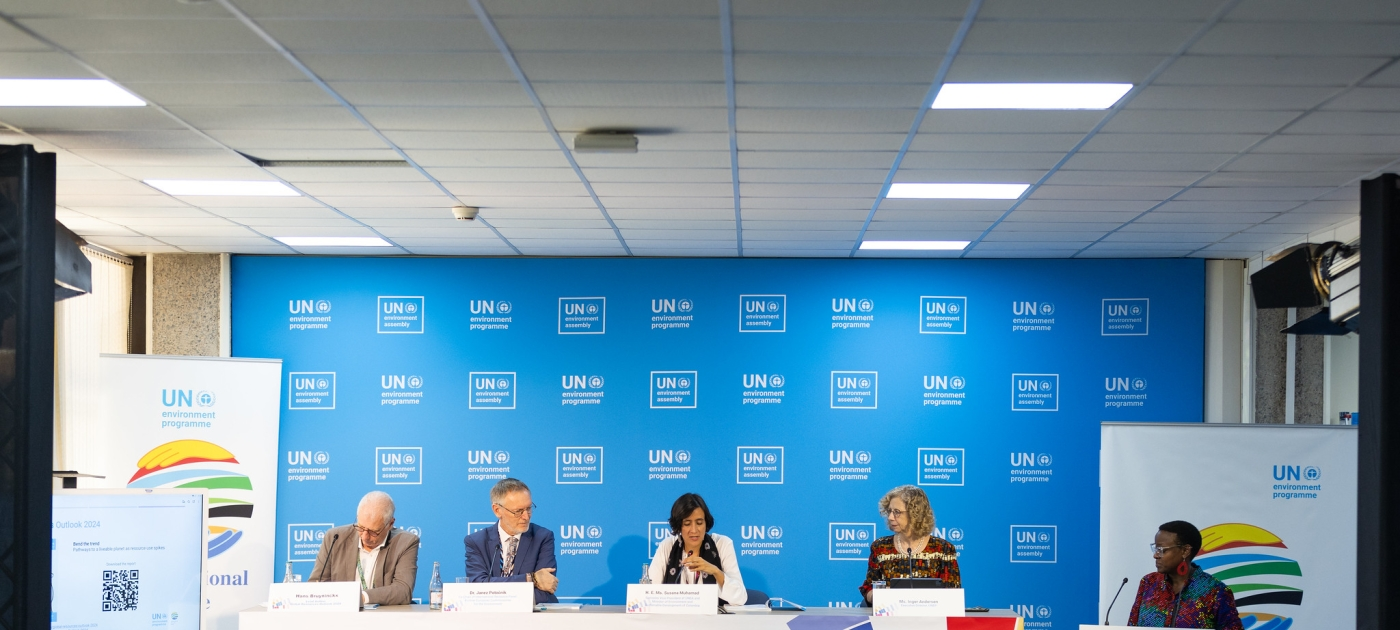Free Courses Sale ends Soon, Get It Now


Free Courses Sale ends Soon, Get It Now



Copyright infringement not intended
Picture Courtesy: https://www.unep.org/news-and-stories/speech/global-resources-outlook-press-statement-unep-executive-director
Context: The United Nations Environment Programme (UNEP) and the International Resource Panel (IRP) released a new report titled "Global Resources Outlook 2024 - Bend the Trend: Pathways to a Liveable Planet as Resource Use Spikes."
Details
|
Global Resources Outlook 2024: Key Highlights |
|
|
Key Points |
Description |
|
Rapid Growth in Resource Consumption |
●Global consumption of resources has tripled in the past 50 years. ●Average annual growth rate exceeds 2.3%, making resource use a major driver of environmental issues. |
|
Driving Factors and Environmental Impact |
●Upper-income countries consume the most resources. ●Resource extraction and processing contribute to over 55% of greenhouse gas emissions and 40% of air pollution in these countries. ●Agriculture and forestry activities further contribute to environmental degradation. |
|
Projected Resource Exploitation Trends |
●Resource exploitation is expected to increase by 60% by 2060 compared to 2020 levels. ●This surge would reach 160 billion tonnes and far exceed what's needed for basic human needs. |
|
Global Inequality in Resource Consumption |
●A stark resource consumption gap exists between rich and poor countries. ●Low-income countries consume six times fewer materials but have 10 times less climate impact compared to wealthy nations. ●Upper middle-income countries have significantly increased resource use for infrastructure development. |
|
Environmental and Climate Impacts of Resource Consumption |
●Resource efficiency and reduced material use are crucial to tackle environmental problems. ●Cutting resource use could lead to an 80% reduction in greenhouse gases, enabling fairer wealth distribution and economic growth. |
|
Call for Urgent Action and Policy Measures |
●The report urges adopting circular economy principles: refuse, reduce, reuse, repair, recycle. ●Policymakers need to integrate resource management into environmental agreements and create incentives for sustainable practices. |
|
Role of Wealth Disparity in Resource Consumption |
●Current resource use is unequal, with wealthy individuals consuming far more than needed. ●The report proposes balancing resource access for the poor with reduced consumption by the rich to improve environmental well-being. |
|
Balancing Economic Growth and Sustainable Resource Use |
●Economic prosperity can be decoupled from high resource consumption. ●The goal is to allow some resource increase for the poor while significantly reducing consumption by the wealthy to achieve environmental sustainability and improve quality of life. |
|
Recommendations for Sustainable Resource Consumption |
●Businesses should adopt circular, resource-efficient, and low-impact models. ●Urgent policy changes are needed to phase out unsustainable practices and promote responsible resource use for human needs. |
|
The Path Forward |
●The report calls for bold policy action towards sustainable resource consumption and production globally. ●This transition must align with Sustainable Development Goals and ensure social acceptance and equity. |
United Nations Environment Programme
Establishment and Mandate
UNEP works on a variety of environmental issues categorized under six main areas
Conclusion
|
PRACTICE QUESTION Q. Which organization released the Global Resources Outlook 2024 report? A) World Health Organization (WHO) B) International Monetary Fund (IMF) C) United Nations Environment Programme (UNEP) D) Food and Agriculture Organization (FAO) Answer: C Explanation: The International Resource Panel, which is part of the United Nations Environment Programme (UNEP), is responsible for the Global Resources Outlook report. |
© 2024 iasgyan. All right reserved